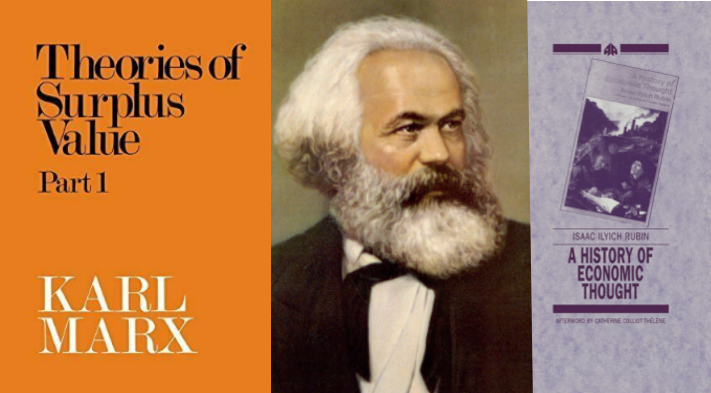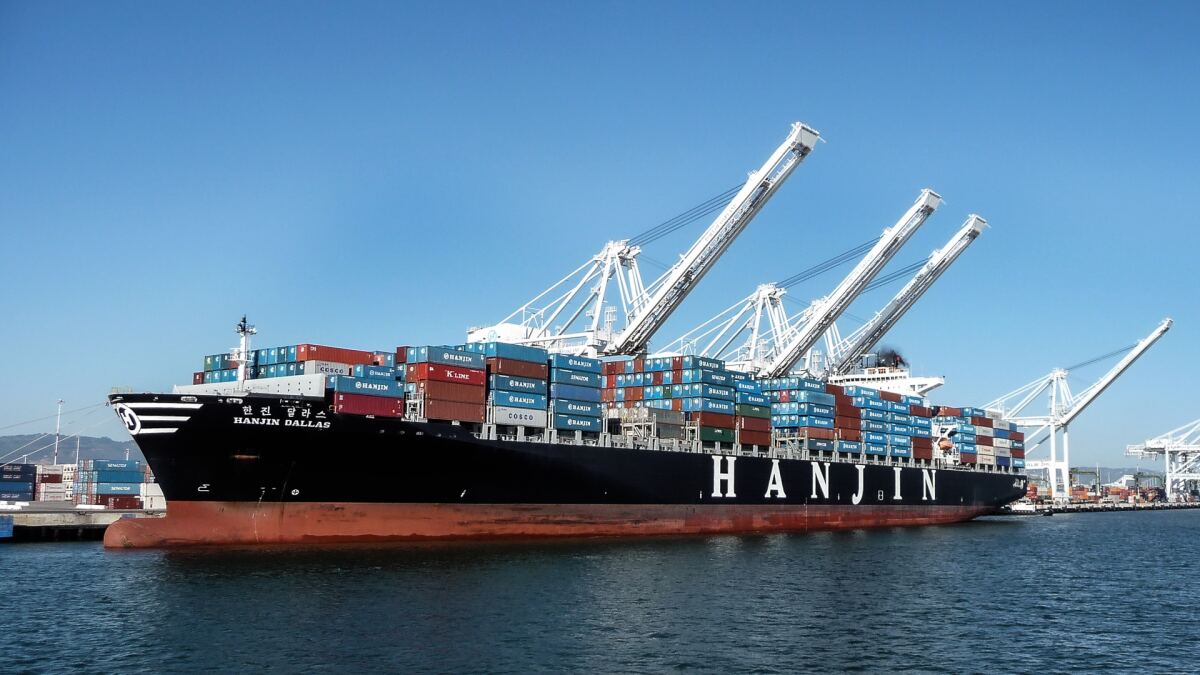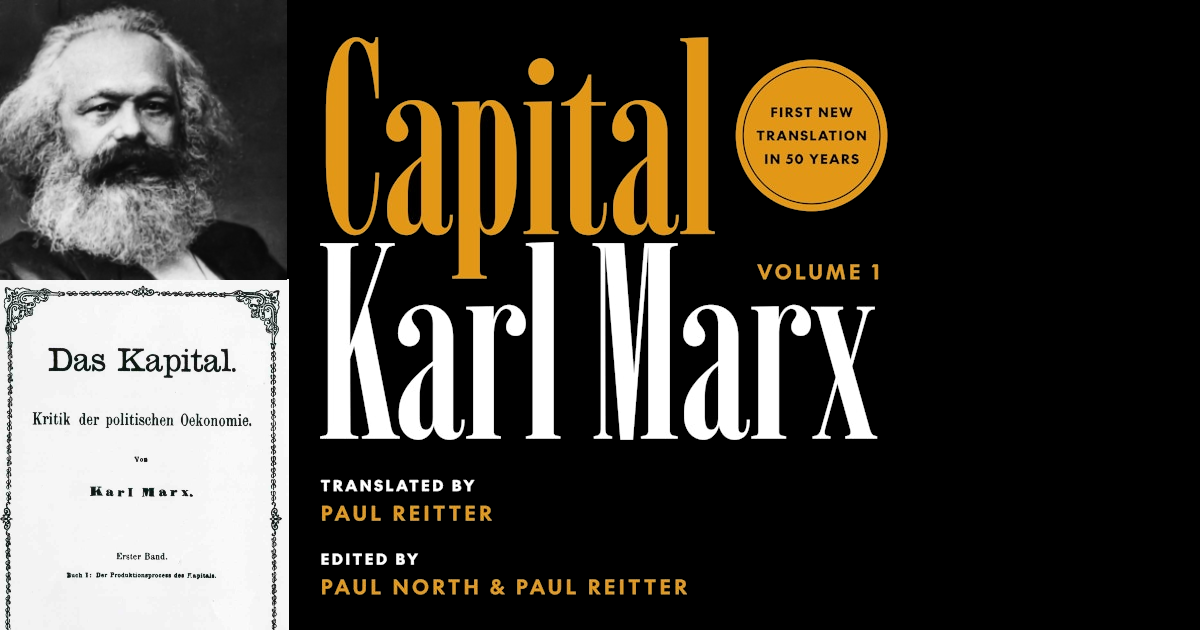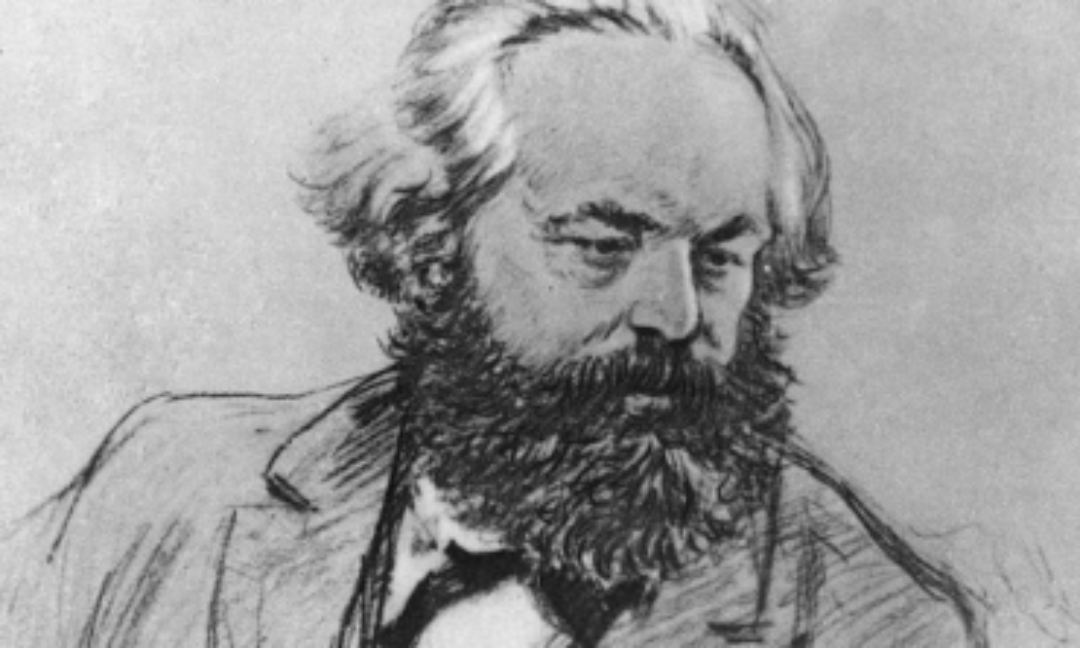_Seasons
Studies in Marx’s Capital
Online: Zoom link will be provided to registered participantsFollowing up on the MEP's long-running study group on Karl Marx's Grundrisse, we have been reading closely and discussing Marx's 'Theories of Surplus Value' and related works. At present we are completing a study of capitalist landholding and ground rent. Future readings may include Soren Mau's 'Mute Compulsion' and Beverley Best's 'The Automatic Fetish.'
The Circulation of Capital: Volume II of Marx’s Capital
Online: Zoom link will be provided to registered participantsA weekly study group covering Marx's Capital, Volume II, The Process of Circulation of Capital. In this volume, Marx addresses the question: How can the reproduction of society as a whole take place, if there is no conscious social planning that ensures that all needs are met, in the necessary proportions, such that life can persist and the capitalist relations of production be sustained? We discover the answer, but we also learn of new contradictions and sources of crisis inherent to capitalist society.
A Prime Competitor: Understanding Amazon’s Market Power
Recording available on YouTubeStephen Maher and Scott Aquanno present an innovative analysis of Amazon's market power, drawing on major themes from Marx's Capital, volume 2. In a recent contribution published by Canada's Socialist Project, they challenge understandings of "monopoly" common in mainstream economics as well as among sections of the left.
AI versus Labor: Luddism and Beyond
Online: Zoom link will be provided to registered participants8 weekly sessions starting Oct 1. Is Artificial Intelligence (AI, sic) really the dire threat to the future of humanity as even some of its proponents claim, or is it a more mundane and familiar threat to working people who face loss of their livelihoods and/or further speed-up and alienation? The entire history of industrial capitalism is punctuated by recurring waves of automation to reduce labor costs and turnover time, each time provoking strong resistance by the affected workforce. This reading group will probe the history both of AI and computer technology specifically and of working-class resistance to capitalist automation in general.
Hegel’s ‘Science of Logic’ – An Epilogue and a Prologue
Hegel for Radicals concludes the current series with a nine-week course co-hosted by Alex Steinberg and Matthew Strauss. We are reading the Introduction and Preliminary Concepts from Hegel’s Encyclopedia Logic, sometimes called “The Shorter Logic.” This material can stand alone as an Introduction to Hegel’s magnum opus, The Science of Logic. But for those who have already studied the Science of Logic with us this can serve as completion of the Circle of the dialectic.
Translating ‘Capital’ for the 21st Century
Online: Zoom link will be provided to registered participantsThe appearance of a new English-language edition of Marx's Capital, Volume I, translated and edited by Paul Reitter and Paul North, has been a momentous occasion. Join a conversation with Reitter, North, and noted Marx scholar Michael Heinrich on the challenges of translating Marx for 21st century readers, the weaknesses and strengths of earlier translations, and the ways the new edition can help us understand Marx's analyses of capital and value.
Reading Marx’s Capital, Volume III
Online: Zoom link will be provided to registered participantsA weekly study group covering Marx's Capital, Volume III, The Process of Capitalist Production as a Whole. This work integrates and completes Marx's analysis, enabling us to understand and make sense of how the phenomena we see occurring on the surface of society are related to the underlying system of capitalism.
Marx Miniseries: The ‘Resultate’
Online: Zoom link will be provided to registered participantsThe MEP's Capital Studies Group presents a miniseries on the chapter Marx omitted from published editions of Capital. Titled "Results of the Immediate Process of Production" and often referred to by the German 'Resultate', this long chapter can be read as a bridge between volumes 1 and 2 of Capital.
Reading Gramsci for Today’s Movements
Online: Zoom link will be provided to registered participantsAn ongoing study group on the Prison Notebooks and other works of Antonio Gramsci. We explore Gramsci's themes and concepts, including state-civil society relations, historical bloc, hegemony, spontaneity, strategy and tactic, and language. We follow Gramsci’s philological method, addressing such areas as linguistics, cinema, critical theory, literature, journalism, comics, animation, plastic arts, mass media and Machiavellian political studies.









